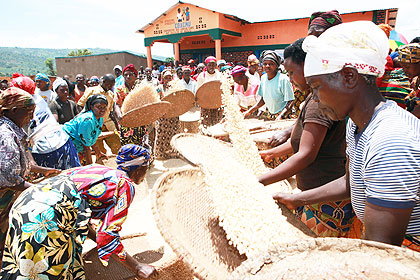African Development Bank (AfDB) will soon introduce an inclusive growth index in an effort to achieve inclusive growth and sustainable development among African countries.


African Development Bank (AfDB) will soon introduce an inclusive growth index in an effort to achieve inclusive growth and sustainable development among African countries. The index will be built around the four pillars of inclusive growth including governance issues composed of political and institutional inclusion, social protection elements, economic issues like growth in GDP per capita, creating jobs and investing in quality education and the role of private sector that is domestic lead to create sustainable development. "There is need to focus on inclusion and its a critical piece of what the bank has to do policy wise because in the last ten years, Africa has had almost uninterrupted growth but inequality has been increasing,” said AfDB Chief Economist and Vice President, Mthuli Ncube.In an interview with Ncube, the index that is being drafted will help African countries to monitor the pillars and target their policies towards inclusive growth. It will also help countries to know the critical issues that need more attention for inclusion to take place. "If all this is done, in my view, Africa will be poised to be the next emerging market after China, Brazil and India but certainly this is possible after a decade,” Ncube said. Briefing journalists, Pedro Conceição, Chief Economist, Regional Bureau for Africa, United Nations Development Programme (UNDP) said."For many years, the challenge was to get growth and the question today is to evaluate how growth recorded recently is translated into improved welfare of the population or human development.” According to Pedro, other developing regions with low growth rates are able to bring out many people out of poverty and advance health and education systems. "The agenda is shifting to how the benefits of growth can be broadly shared as well as how it could be sustained, which is the idea of resilience to ensure any shock does not derail growth achieved,” said Pedro. The concluded African Economic Conference tasked policymakers to create diversified economies capable of generating employment, implementing better social policies and inclusive growth."Rich countries are very much concentrated on their own immediate problems to fix,” said Donald Kaberuka, President of the African Development Bank.Participants agreed that good governance and fair competition will help Africa to meet its sustainable development agenda.According to the African Economic Outlook 2012, economic growth across the African continent is expected to rebound from 3.4 per cent in 2011 and accelerate to 4.5 per cent in 2012 and 4.8 per cent 2013.


